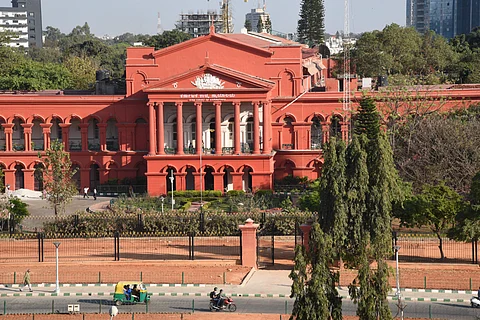

On August 2, the Karnataka High Court issued a notice to the state government on a public interest litigation (PIL) filed by parents and teachers of students of schools affiliated to CBSE (Central Board of Secondary Education) and CISCE (Council for the Indian School Certificate Examinations) boards, seeking directions to declare as unconstitutional Rule 3 of the Kannada Language Learning Act. It mandates teaching Kannada as a compulsory language to all students of Classes I to X in all schools of the state. The petitioners say the rule violates Article 14 (equality) of the Constitution.
A division bench of Chief Justice Prasanna B Varale and Justice MGS Kamal passed the order after hearing the petition filed by Somashekar C and others. The petitioners stated that the combined effect of the Kannada Language Learning Act, 2015, rules framed under the Act in 2017 and Karnataka Educational Institutions (Issue of No Objection Certificate and Control) Rules, 2022 (NOC Rules), is that schools in Karnataka including those affiliated to CBSE and CISCE Boards will now have to teach Kannada either as a first, second or third language and this will adversely affect students and children.
While the impugned Act and Rules mandate that Kannada be taught as a first or second language, the NOC rules require Kannada to be taught as a second or third language. This will severely affect the rights of students and have serious consequences on the livelihood of language teachers. Additionally, the enactments are contrary to the Karnataka Education Act, which specifically excludes the applicability of the Act to CBSE and CISCE schools.
The petitioners stated that they are not opposed to Kannada being taught as a language. However, its compulsory imposition, in the manner it is sought to be done through enactments, would lead to severe prejudice against schoolchildren.
They further stated that in each state, there is a large section of citizens whose mother tongue is different from the regional languages. These citizens often work in private and government establishments and are often transferred from one state to another. They generally enrol their children in CBSE/CISCE affiliated schools, as stated in a report by The New Indian Express.
